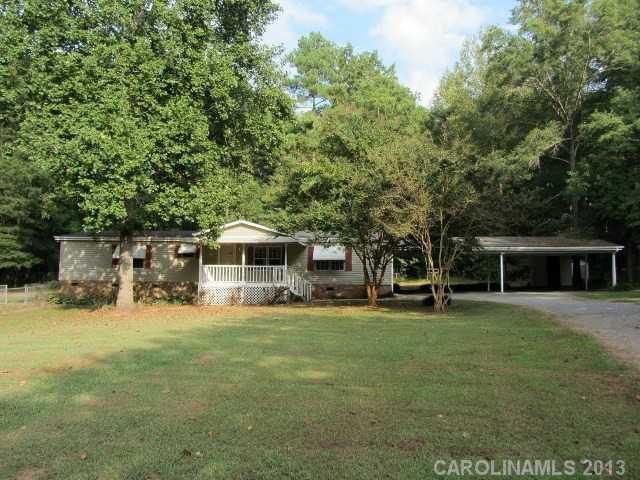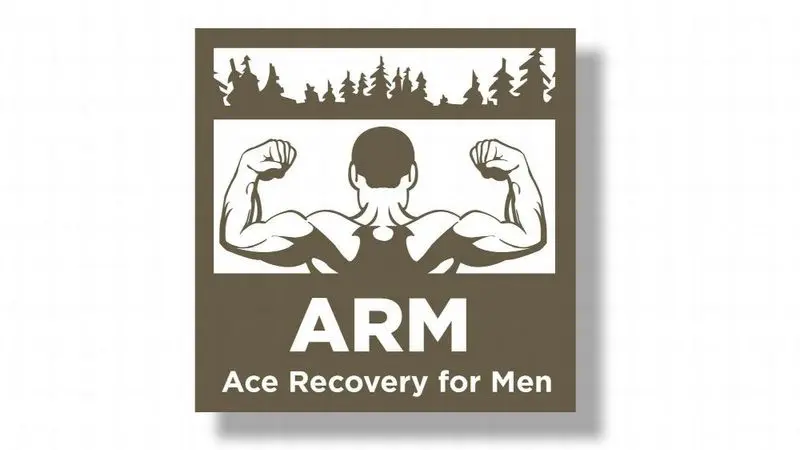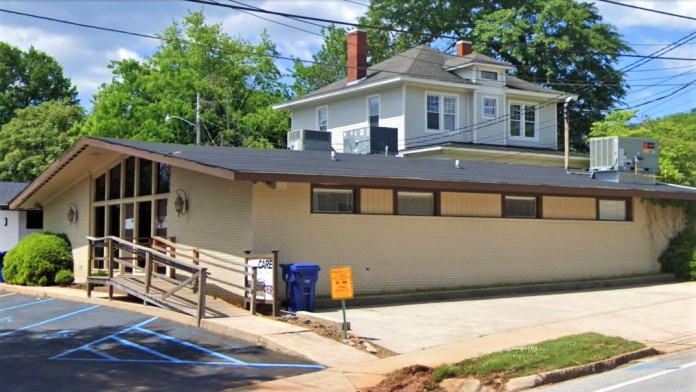Limited Availability: Treatment beds filling quickly. Call now for immediate placement – (844) 561-0606
Explore a comprehensive guide to 13 inpatient, 7 outpatient, and 9 detox centers across South Carolina. Compare costs, reviews, and treatment options to find the perfect rehab facility for your needs.

 | A Better Way - R and R OutreachA Better Way – R and R Outreach in Rock Hill, SC, is dedicated to providing compassionate support and effective treatment for individuals facing substance use disorders. Offering a range of services, including counseling, life skills training, and community support, the center focuses on empowering clients to reclaim their lives and achieve lasting recovery. With a commitment to holistic healing and personalized care, A Better Way – R and R Outreach fosters a nurturing environment for individuals seeking a path to a healthier and brighter future. Explore the resources available to help you or your loved one on the journey to recovery. 2812 Carhart Rd, Rock Hill, SC 29730 | Levels of Care:Inpatient Payment Options:Self-Pay Options | ||
 | Ace Recovery for MenAce Recovery for Men in Chesterfield, SC, is dedicated to providing specialized addiction treatment services tailored specifically for men. The center offers a range of programs, including detoxification, residential treatment, and therapeutic support, all designed to address the unique challenges faced by men in recovery. With a focus on building resilience and fostering personal growth, Ace Recovery for Men creates a supportive and structured environment where clients can work towards lasting sobriety. Discover the resources and compassionate care available to help you or your loved one embark on a transformative journey to recovery. 1477 Ted Melton Rd, Chesterfield, SC 29709 | Levels of Care:Inpatient Payment Options:MedicaidSelf-Pay OptionsPrivate insurance | ||
 | AddCare CounselingAddCare Counseling in Greenville, SC, offers personalized mental health services designed to support individuals facing various challenges, including addiction, anxiety, depression, and trauma. The center provides a range of therapeutic approaches, including individual counseling, group therapy, and family support, all tailored to meet the unique needs of each client. With a focus on compassionate care and evidence-based practices, AddCare Counseling is committed to helping clients develop coping strategies and achieve emotional well-being. Explore the resources available to empower you or your loved one on the path to recovery and personal growth. 413 Vardry St Ste 7, Greenville, SC 29601 | Levels of Care:Inpatientoutpatient Payment Options:Private insuranceSelf-Pay OptionsMedicareMilitary InsuranceMedicaid | ||
Advanced DiagnosticsAdvanced Diagnostics in Summerville, SC, provides a wide range of comprehensive health services aimed at promoting wellness and preventive care. With state-of-the-art technology and a team of experienced professionals, the center offers diagnostic testing, screenings, and health assessments to support accurate diagnoses and effective treatment plans. Committed to exceptional patient care, Advanced Diagnostics focuses on delivering personalized services that cater to the unique health needs of each individual. Discover how Advanced Diagnostics can help you take charge of your health and well-being. 106 Paddock Way, Summerville, SC 29483 | Levels of Care:Inpatient Payment Options:MedicaidMedicareMilitary Insurance | |||
Aiken - Barnwell Mental Health CenterAiken - Barnwell Mental Health Center | Payment Options:Medicaid | |||
Aiken - Barnwell Mental Health Center - Hartzog CenterAiken - Barnwell Mental Health Center - Hartzog Center | Payment Options:Medicaid | |||
Aiken - Barnwell Mental Health Center - The Polly Best CenterAiken - Barnwell Mental Health Center - The Polly Best Center | Payment Options:Medicaid | |||
Aiken Regional Medical CenterAiken Regional Medical Center | Payment Options:Self-pay options | |||
Aiken Treatment SpecialistsAiken Treatment Specialists | Payment Options:Self-pay options | |||
Alano Club910 67Th Avenue North, Myrtle Beach SC, 29572 | ||||
Alston Wilkes Society - Rehabilitation ServicesAlston Wilkes Society - Rehabilitation Services | Payment Options:Self-pay options | |||
Alternatives Life Improvement CenterAlternatives Life Improvement Center | ||||
AMIkidsAMIkids | Payment Options:Medicaid | |||
AMIkids - Country Club DriveAMIkids - Country Club Drive | Payment Options:Medicaid | |||
AMIkids - Marlboro RoadAMIkids - Marlboro Road | Payment Options:Medicaid | |||
Anderson - Oconee - Pickens Community Mental HealthAnderson - Oconee - Pickens Community Mental Health | Payment Options:Medicaid | |||
Anderson - Oconee - Pickens Mental Health CenterAnderson - Oconee - Pickens Mental Health Center | Payment Options:Medicaid | |||
Anderson Oconee Behavioral Health ServicesAnderson Oconee Behavioral Health Services | Payment Options:Medicaid | |||
Anderson Oconee Behavioral Health ServicesAnderson Oconee Behavioral Health Services | Payment Options:Medicaid | |||
Angels Charge MinistryAngels Charge Ministry | Payment Options:Self-pay options |
Find South Carolina drug rehabs in cities near you or sort by letter.
For anyone seeking help for addiction for themselves or a loved one calls to Addiction Helpline America are completely confidential and available 24/7.
Please note: any treatment center listed on our site that receives calls is a paid advertiser.
Calls to a specific treatment center’s listing will be connected directly to that center.
Calls to our general helpline will be answered by treatment providers, all of whom are paid advertisers.
By calling the helpline, you agree to our terms and conditions. These calls are free of charge and carry no obligation to enter treatment. Neither Sober Steps nor anyone answering your call receives a commission or fee based on your choice of treatment provider.
If you’d like to explore additional treatment options or connect with a specific rehab center, you can browse our top-rated listings, visit our homepage, or call us at (844) 561-0606. You may also contact us for further assistance.
Calls to any general helpline will be answered or returned by one of the treatment providers listed, each of which is a paid advertiser:
Our helpline is available 24 hours a day, 7 days a week at no cost to you and with no obligation for you to enter into treatment. We are committed to providing support and guidance whenever you need it.
In some cases, Addiction Helpline America charges our verified partner a modest cost per call. This fee helps us cover the costs of building and maintaining our website, ensuring that we can continue to offer this valuable service to those in need.
rehabs in south carolina, drugs rehab center, rehabs in sc, south carolina rehab, drug rehab south carolina
When seeking treatment for addiction, it is crucial to understand the different levels of care available, including inpatient, outpatient, and detox services. Each level is designed to meet varying needs based on the severity of the addiction and the individual's circumstances.
Inpatient care provides a structured environment where patients can focus solely on recovery, while outpatient services offer flexibility for those who may not require constant supervision. Detox centers specialize in helping individuals safely withdraw from substances, often serving as the first step in a comprehensive treatment plan.
Cost is a significant factor for many individuals seeking addiction treatment. Understanding the pricing structures of different rehab centers can help patients make informed decisions about their care options. Costs may vary based on the type of facility, treatment methods, and length of stay.
Many centers offer various payment options, including insurance coverage, sliding scale fees, and financial assistance programs. It’s essential for individuals to verify their insurance benefits and inquire about potential costs upfront to avoid unexpected financial burdens during recovery.
Evaluating the success rates of different rehab programs can provide valuable insights into their effectiveness. Success rates typically reflect the percentage of individuals who achieve long-term sobriety after completing treatment, which can vary significantly among facilities.
Factors influencing success rates include the type of treatment provided, the duration of the program, and the level of aftercare support available. Researching and comparing these rates can help potential patients select a program that aligns with their recovery goals.
Aftercare is a critical component of the recovery process, as it helps individuals maintain sobriety after completing a rehab program. Support systems, such as sober living houses, support groups, and ongoing counseling, play a vital role in preventing relapse.
Many rehab centers in South Carolina offer aftercare programs designed to support individuals as they transition back into everyday life. These programs often include regular check-ins, access to resources, and community support to foster a sustainable recovery journey.